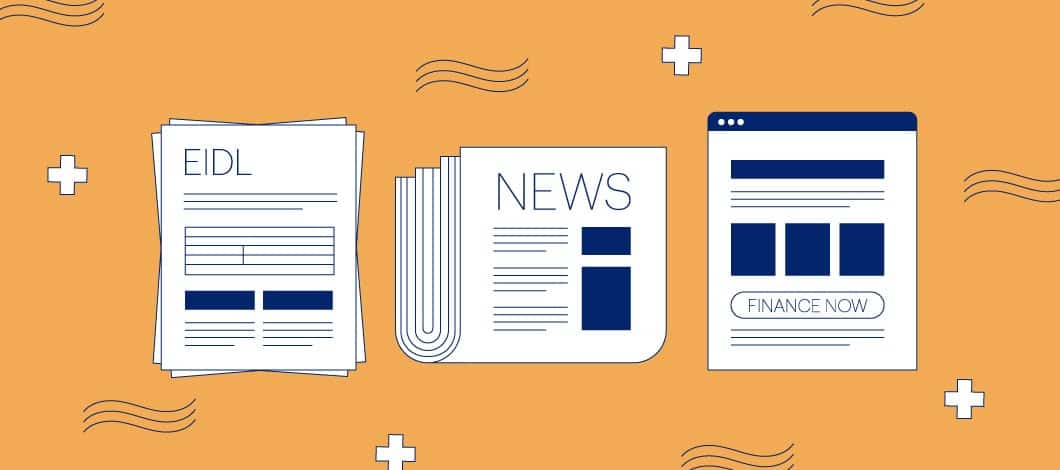Whether you own a restaurant, bar, entertainment venue or other small business, you’ve likely felt the brunt of COVID-19. Without a doubt, keeping the doors open can be a Herculean task that entrepreneurs everywhere are struggling with these days.
Indeed, small business owners are a large part of what drives the U.S. economy. So, where can you turn for support and financial assistance to persevere? How do you remain steadfast in these challenging times?
Here are several outlets providing help for small business owners throughout the nation.
Small Business Relief While Awaiting Another Stimulus Package
Reduced revenue and customer demand are taking their toll. Seasonal changes are expected to have an impact on the small business landscape too. What resources can you tap into as you manage through the year?
Private Small Business Stimulus Grants
If you’ve been looking for small business stimulus grants to no avail, consider grants from private organizations.
Grants often can be used however your business needs and can be a viable alternative when you’re in need of capital to keep your business going. See what grant opportunities you could qualify for, including grants for women- and minority-owned businesses.
Local Government Small Business Stimulus Grants
Local and state governments throughout the U.S. are responding to the plight many small business owners are facing today. The U.S. Chamber of Commerce’s Save Small Business Initiative offers links to each state’s funding programs, including grant programs.
Michigan, for example, recently approved a $10 million program to provide help for small business owners, with up to $15,000 available for each approved business.
Along the same lines, California is developing a COVID relief grant expected to provide $500 million in funding to small businesses and which would provide up to $25,000 per approved applicant. Similarly, San Diego County recently approved a $20 million small business stimulus package.
SBA Express Bridge Loan
If you have an existing relationship with an SBA Express lender, consider applying for an SBA Express Bridge loan. It’s designed to provide businesses impacted by the pandemic a term loan of up to $25,000 for up to 7 years.
There are no collateral requirements for this loan, and it can serve as bridge financing while you await approval of a long-term loan, such as an Economic Injury Disaster Loan (EIDL). Applications for the program can be submitted through March 13, 2021, and the SBA touts quick turnaround times.
GoFundMe
Think about signing up for a GoFundMe account and creating a fundraiser for your business. The site has created a specific Small Business Relief Fund for those impacted by COVID-19.
Explain your hardship and what you would use funds for, and you could receive financial assistance. Businesses that raise at least $500 from crowdfunding on the site could receive a matching $500 grant from the platform.
Since Aug. 31, 2020, more than 4,000 U.S. small businesses have been granted more than $2.7 million.

Tips for Additional Small Business Relief
Help for small business owners extends beyond financial programs. Here are a few ways to weather the storm while the country awaits a small business stimulus package from the federal government.
1. Consider Applying for an EIDL
If you haven’t been able to be approved for a loan elsewhere and business is suffering as a result of the pandemic, think about applying for an EIDL through the SBA.
Interest rates are fixed at 3.75% for businesses and repayment terms can extend up to 30 years. Loans can be approved for up to $2 million based on a business’s need. Proceeds can be used for working capital and regular business expenses, such as payroll, rent, utilities and more.
2. Reach Out to a Different Lender
If you’ve normally worked with a big bank to secure financing, consider other lenders. Your local credit union, for instance, may be able to loan you funds when a bank may deny you.
Another option to consider is applying for financing with an alternative lender like an online provider of funding. Alternative lenders typically offer faster access to funds with less stringent qualification requirements.
3. Find Helpful Online Resources
Visit reputable websites for assistance. For instance, check out your local chamber of commerce site or head to your state or local government’s official website. There, you might find many helpful, often free, resources. The U.S. Economic Development Agency also provides links to resources in every state.
Additionally, reputable nonprofit organizations, such as the nationwide SCORE, could provide updated information regarding grant and funding opportunities. You could also find links to additional resources that could provide assistance during this time, such as on SCORE’s Small Business Resilience Resource Portal or the Small Business Development Center’s Federal Resources for Small Businesses site.
4. Stay Up to Date on Current Events
Yes, watch the news. Sounds simple, but it’s an easy way to stay abreast of changes that develop on a national scale, changes that could have an impact on your small business.
Also, consider signing up for your small business lender’s newsletter or follow the lender on social media to get the latest details on financing options and topics of interest for entrepreneurs.
5. Research Tax Relief Options
Consider what tax benefits your business may be able to take advantage of, such as the following:
- Employee Retention Tax Credit: You may qualify for a credit of up to $10,000 per employee for half of qualifying wages paid from March 13, 2020, through Jan. 1, 2021.
- Families First Coronavirus Response Act Tax Credit: Small businesses can benefit from refundable quarterly tax credits intended to help offset the cost of paid sick and family leave related to the pandemic.
- Payroll Tax Deferral: From March 27, 2020, through Dec. 31, 2020, self-employed individuals and employers can defer their portion of payroll taxes. The deferred taxes are paid in 2 portions, 1 by the close of 2021 and the other by the close of 2022.
Is Another Small Business Stimulus on Its Way?
While we don’t have a crystal ball, talks are underway to provide another small business stimulus package. The Dec. 3, 2020, NBC headline was “Capitol Hill leaders make progress on Covid relief price tag, but policy disputes linger.”
Additional funding for the Paycheck Protection Program, which was depleted of funds shortly after its launch, is part of the discussions. The article notes the bipartisan plan would include $288 billion in small business relief as well as additional unemployment benefits.











